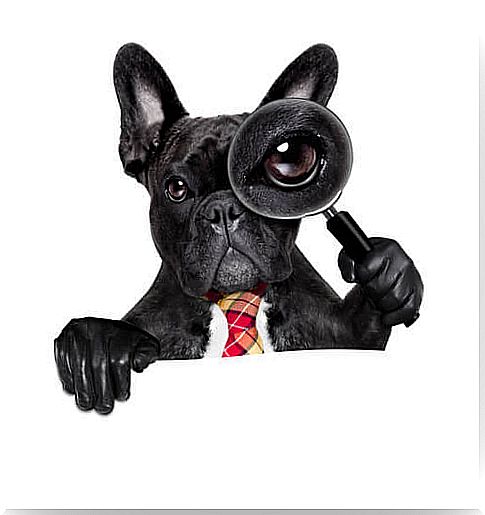Scientific Trivia About Dogs

The history of friendship between man and dog has generated many popular beliefs and aroused a lot of curiosity in scientists. We often hear that dogs can know when their guardians are sad or sick and can even predict pregnancy. But what does science say about this? Here are some scientific facts about this.
Scientific Fun Facts: Dogs Perceive Our Mood
We probably all feel that our dogs know when we’re sad and we need their company. This behavior has encouraged numerous researchers to see if dogs can really sense our moods.
The University of São Paulo and the University of Lincoln developed an interesting experiment. First, they selected several dogs, of different breeds, including mixed breeds (mutts), and ages. Then, they observed their reactions to various people with different moods.

Interestingly, the dogs were unfamiliar with the participants; they were simply exposed to them on different occasions. The findings show that dogs are really capable of interpreting human moods.
One of the scientific curiosities about dogs is that they are able to perceive the mental state of someone, both their owners and strangers.
It is also indicated that this is a characteristic ability of its species, probably developed over the centuries it has been following humanity. Therefore, dogs can sense the mood even in strangers, not just their guardians.
The likely explanation lies in their ability to “read” our facial expressions, postures and actions. Because dogs communicate primarily through their body language, they can sense our moods even if we don’t utter a word.

Other scientific trivia about dogs
-
Your “fingerprints” are on your nose
Just as we have our fingerprints, dogs have a natural and unique “print” on their noses. In other words, each dog is born with a unique ‘design’ on the tip of the nose, so that its muzzle is unique in the canine world. This type of signs or drawings expresses the animal’s identity, although we cannot use it as an identification method (such as a microchip).
-
They can identify over 100 words (and also signs)
For many years, it was believed that canine obedience was primarily based on understanding the intonation of the voice. However, recent studies at the University of British Columbia have shown that dogs can distinguish more than 160 words. Some breeds, such as a border collie, would be able to understand 200 terms.
In addition, many experts also say that dogs can easily distinguish between voice signals and intonations. Among other things, because they have brain areas similar to ours. For this reason, it is important to use body language and be aware of the tone of voice during training.
-
Our love for them is like that of a mother for her child
Certain studies have shown that the bond between man and dog is similar to that of mother and child. The main responsible for this is oxytocin (the so-called “love hormone”). Its effects on the body allow our affective connection with dogs to be similar to the biological bond between mothers and children.
-
Dogs and the Tasmanian devil ‘look alike’ in something
Another scientific curiosity about dogs is that they are one of the only mammals, along with the Tasmanian demon, to suffer from contagious cancer. It is a type of malignant tumor whose contagion occurs during mating and can affect both purebred and mixed-breed dogs.
This serious illness must be diagnosed early to allow for effective treatment. The advancement of symptoms can cause deformation of the genitals and seriously harm the animal’s health. Therefore, we must always remember the need to provide adequate preventive medicine.
-
There are also pessimistic dogs
A recent study published in the journal Current Biology notes that some dogs have a natural tendency to pessimism. That is, there would naturally be more happy and positive races, while others have a tendency to be sadder or moodier.
Therefore, genetics play an important role in each dog’s personality and behavior. Furthermore, we must also consider that education and socialization are also determinants in the behavior of our furry friends.
Currently, many scientific curiosities about dogs can help us understand their nature. Now, it is essential to emphasize that each dog is a unique and unique individual, with its own characteristics that make up its personality.









